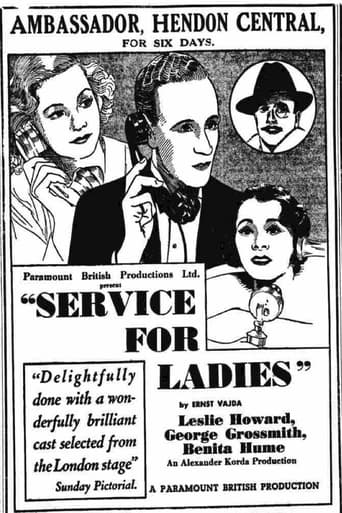


Service for Ladies
Max Tracey is the head waiter at a London hotel. He falls in love at first sight with Sylvia Robertson, an aristocratic woman, and poses as a prince to win her love. In this venture, he is aided by Mr. Westlake, a Ruritanian monarch who owes him a favour. When Sylvia discovers Max's deception, she is appalled, but the situation is resolved when her father tells her that he was once a hotel dishwasher.
-
- Cast:
- Leslie Howard , George Grossmith , Benita Hume , Elizabeth Allan , Morton Selten , Diana Churchill , Martita Hunt


Similar titles
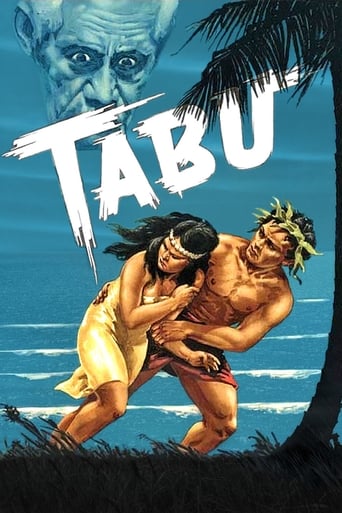


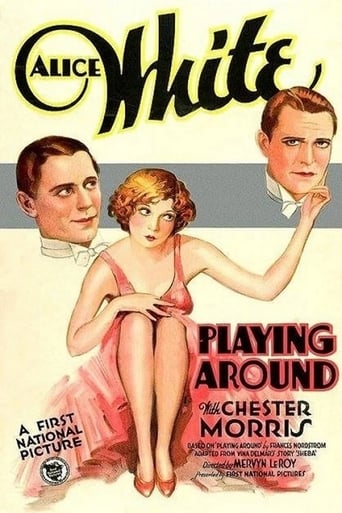
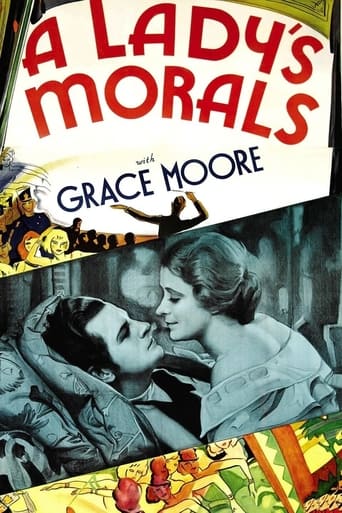
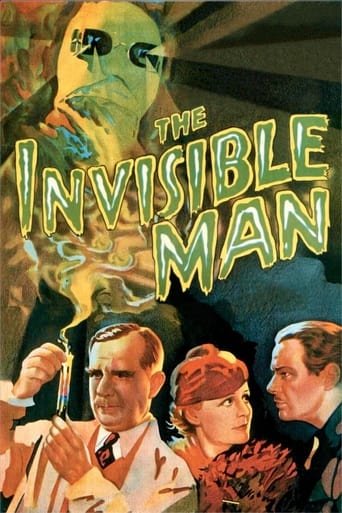
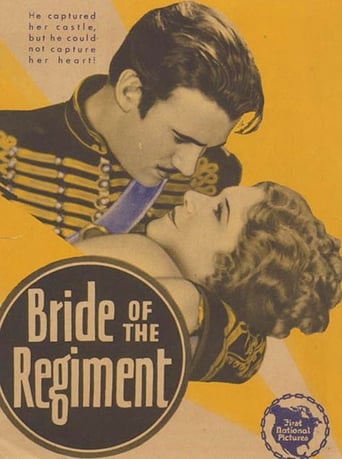
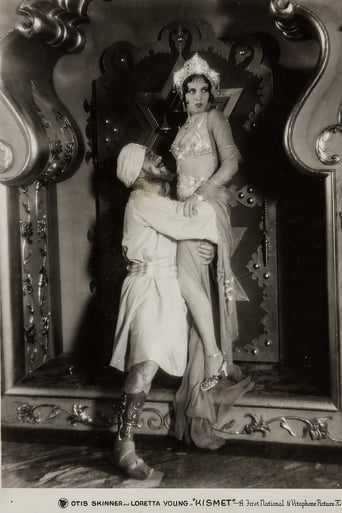
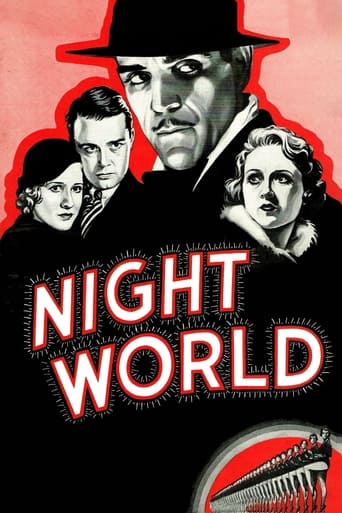
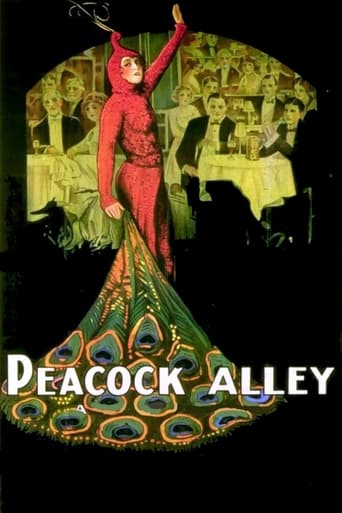
Reviews
I like the storyline of this show,it attract me so much
I love this movie so much
Clever, believable, and super fun to watch. It totally has replay value.
It's a movie as timely as it is provocative and amazingly, for much of its running time, it is weirdly funny.
"Service for Ladies" still retains a good deal of charm despite its age. Both a romantic comedy and a comedy of errors, its elegant, smooth touch, through the refined performances by Howard, Hume, Allan, Grossmith, and Selten, makes for enjoyable viewing even today.A few points are worth noting for context and appreciation. The running theme of the film is the strictures of class distinction. (Spoiler) The storyline concentrates on Max's (Howard) status as a head waiter in contrast to that of wealthy débutante Sylvia (Allan) and overemphasizes this through the character of "Westlake", the unidentified "King" who books into the fictitious "sporthotel" in Austria "incognito". This subplot is played to comic effect by the portrayal of the King's "incognito" stay as an open secret amongst all of the hotel's staff and guests, wherein provincially-dressed serving girls render him deep bows in unison, while the affluent female guests bow at the neck with the hope of a chance introduction.But the film's portrayal of the status of and regard for royalty (much less social station in general) is quite anachronistic, even for the time. By 1932, the year of the film's release, European royalty as it had been traditionally known was generally a thing of the past, particularly in the most important Continental countries. European monarchism met its death knell at the close of World War I in 1918, by which time the emperors of Austria, Germany, and Russia had abdicated, and others denuded of any real political power. The major powers of Europe were constitutional republics by 1932, with the exception of Italy, which was subject to the fascist regime of Mussolini, a portent of more disastrous politics to come in that decade. The idea that a foreign king would induce such fawning subservience at an alpine hotel in the republic of Austria was absurd in the extreme. Just as astute critics have viewed the 1930's stories of Jeeves and Wooster by Wodehouse as actually a throwback to Edwardian times, so is this movie more properly seen as a nostalgic look back at an earlier time rather than a contemporary view of social conditions.Perhaps the class distinction theme and the royalist subplot is attributable to the background of the writers, who were fellow Hungarian expats along with director Alexander Korda. Their youth was spent under the more benign twilight period of the Austrio-Hungarian Empire, a period of social conditions and mores roundly extinguished by later World War, the Roaring Twenties, the Great Depression, and their resulting upheavals. Indeed, by 1932, the notion that the daughters of the wealthy might be prone to elope with some charmer from the working classes was no longer unusual, due in part to its actual occurrence in instances usually exploited by the tabloids of the time. The nostalgic patina of the film is most likely attributable to the perspective of these Hungarian writers, who likely perceived more modern conditions as less conducive to a light romantic comedy than the Europe of their youth. Thus if the film is viewed as more fairy tale than social commentary, it becomes much more digestible, if not more enjoyable.To segue from the film's anachronism to its clear instances of modernity, I quite enjoyed those time capsule moments that captured the early 1930's and that even portend themes that continue to titillate today. The restaurant fare, the period cars and trains, the candlestick telephones, and the fashions worn by Allan and Hume are all a delight. Max's love of jazz and dancing to jazz are a highlight that aptly displays European fascination with that American-rooted contemporary music. Finally, this English-produced and pre-Production Code film packed a good bit of sexuality, if understated. Countess Ricardi's bathtub scene, Max's reputation as a sexually active ladies' man, and the plunging décolletage are instances of the more European approach to the sexuality of the film. The Production Code would have probably prevented Sylvia lounging on Max's bed at midnight while she tries to seduce him. The sexual themes in the movie are most definitely subtle and inferred, but they are key to its romance and certainly enhance its enjoyment for the contemporary viewer.
This is a charming, dated and amusing little trifle from 1932. Leslie Howard plays Max, the Major Domo of a London Grand Hotel's cooking staff, in charge of their main dining room. He once served a well known European monarch (George Grossmith) and is on a friendly basis with the king even now. He decides to take a vacation in order to avoid a much married countess (Benita Hume), and he goes abroad meeting an attractive young woman (Elizabeth Allan) and her father (Morton Selden). Going to an expensive alpine hotel, Howard continues romancing Allan. Then Grossmith arrives for his yearly "incognito" vacation at the hotel. Grossmith's friendly attention to Howard makes the guests and staff of the hotel think that the latter must be royalty too. A photograph of him with the monarch appears in a London paper, and Hume heads for the hotel to confront him, and threaten to expose him unless he 1) introduces her to the monarch; and 2) seriously pay attention to her for a change. This naturally puts a dent into his dating Allan, and he ends up trying to balance between them (one nice touch: at dinner he has to light both their cigarettes at the same time!). The film then follows as a chastened Howard flees back to London - but is he free of Allen yet?It was a different, class conscious age from ours. I'm not totally against the end of this, but it also meant that we lost some of the elegance that went with class divisions (such as dinning in specific clothing, or expecting certain niceties like brandy in snifters and cigars at certain times of the day). As such SERVICE FOR LADIES is a lovely time capsule of the class system of 1932. The cast is a good one, in particular the five leads (headed by Howard), who mingle common sense and social standards of their time quite well.One last comment: I cannot help thinking that the sensible, rather modern monarch in the film is based on the most popular king in Europe in 1932. This was King Albert I of Belgium, who was probably the first modern king in the 20th Century. Albert was king by accident (his cousin, the heir to the throne, died prematurely, and he inherited the position of King when his uncle, the notorious Leopold II - of the "Congo Horrors" Scandal - died in 1909). Leopold had not cared for the democratic trimmings that he was supposed to support, but Albert paid more attention to them. He did not make a big splash (as Leopold did) on the society pages. He stuck closely to his family. In World War I, when Germany invaded Belgium to get at France, Albert heroically stayed at the front fighting the invaders, and would remain leading the tiny Belgium army units throughout the War for the allies. An international hero in 1918, unlike so many of the monarchs of the day he did not disgrace his country. I do not know if Albert traveled incognito but it is probable that his traveling was somewhat low keyed. He liked to go abroad for his favorite hobby - mountain climbing. That too reminds us of he foreign hotel in this film, where people go skiing all the time. Unfortunately for King Albert he was killed in 1934 in a mountain climbing accident.The monarch in the film played by George Grossmith certainly is egalitarian. He does not really like a big fuss for himself (although the staff does actually bend over backwards for him, and the guests are aware of who he actually is). His small talk with Selden, in one scene, deals with their liver problems, and the pills both take. But his conversations with his old friend Howard are quite interesting. Both men dislike politicians as men who pretend to morality without having morals, and both realize that the bulk of people are snobbish - only servants and monarchs realize how silly most social class distinctions really are.
Service For Ladies is an early film by producer Alexander Korda in Great Britain before he started his London Film Company. This one was made under the auspices of Paramount Pictures shot over on the other side of the pond and released in America and in the United Kingdom under their white mountain banner.I'm not sure how well it did here because it deals with the European concept of class distinctions. Not that we don't have it here, but in America it usually involves money. Over there it's titles.Leslie Howard plays the head waiter at a posh London night spot where Morton Selten and daughter Elizabeth Allan are dining out. One look at her and he chases her to the continent when he hears she's going to a resort. And she gets it in her head that Howard is some kind of royalty. After all there is a king from some unnamed country vacationing there who knows Howard who is played by George Grossmith. Of course the king's dined at Howard restaurant before.Service For Ladies is kind of a Cinderella story in reverse where the boy is the one who gets the magical evening. Howard plays the role with his usual charm. I'm sure it did well over in Europe, I can't see it having much of a market in Depression America. Still it's a nice dated antique of a film.
Alexander Korda was certainly a very fine producer of British films, but SERVICE FOR LADIES is a very dated British comedy of manners playing up the class distinction that prevents commoners from associating with those higher up on the social ladder.Furthermore, the print shown on TCM looked faded and slightly blurry which made the film seem even more of an antique. The script is the sort where mistaken identity is played for whatever laughs it can get--and very few laughs make for a deadly dull comedy.LESLIE HOWARD, who usually has such a flair for romantic comedy, has to carry the film with very little help from ELIZABETH ALLAN and BENITA HUME as two women he fancies. The script doesn't give them enough to work with so the performances are undistinguished, to say the least.Howard was seen to much better advantage in his American films, particularly IT'S LOVE I'M AFTER ('37), a romantic comedy in which his skill at playing comedy was overwhelmingly evident.You won't get that impression here.
